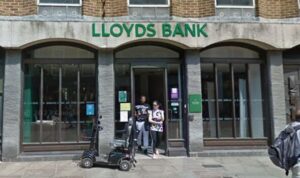
With pre-Autumn Budget pension tax fears causing a spike in the number of people accessing retirement pots early, many have now been left with regret after withdrawing tax-free lump sums.
Speculation mounted ahead of Rachel Reeves’s October speech that the pension tax-free lump sum cap might be targeted to address a reported £40 billion shortfall in the nation’s finances.
The pension tax-free lump sum allows savers aged 55 and over to withdraw 25% of their retirement pot tax-free, up to a maximum of £268,275. Concerns arose that this cap could be reduced to £100,000, sparking a rush to secure the benefit before any potential changes were announced.
However, Ms Reeves ultimately left the tax-free lump sum untouched. Instead, she targeted pensions through changes related to inheritance tax.
While this has attracted its own criticisms, many were relieved to keep their lump sums intact. For those who accessed pots and now regret doing so, there may still be time to return the funds, an expert has said.
Answering a Q&A for The Times, Tom Selby from wealth management firm AJ Bell, said: “It might be possible to reverse the decision to take your tax-free cash — although you’ll need to get your skates on as, in most cases, the time limit is 30 days.
Mr Selby explained that, when people apply for certain financial products, rules set out by the Financial Conduct Authority (FCA) mean they must be given the right to cancel.
He continued: “This includes where someone accesses a personal pension for the first time.”
However, he noted: “This point is crucial — if you had already accessed your pension then the pension firm may not allow you to reverse the decision.”
If the pension pot is being accessed for the first time and the provider is regulated by the FCA, individuals should have the right to cancel within 30 calendar days.
Mr Selby added: “The clock will usually start ticking from the point you receive notice of your rights, or the date you get the payment.
“Your cancellation rights should have been confirmed when you processed your request to access your tax-free cash, either in writing or by email. If you can’t find them, get in touch with the firm as soon as possible to find out where you stand.”
Different pension schemes may have different rules, making it important for people to check the terms and conditions of their respective providers.
According to Mr Selby, the process for cancellation may vary by provider, but if the option is available and an individual chooses to proceed, they would need to repay any tax-free cash that was withdrawn. This could present challenges if some or all of the money has already been spent.
However, once the tax-free cash is returned to the pension – provided the scheme allows it – it would be treated as though it had never been accessed.
There could be additional fees, such as bank or dealing charges, to pay, which people should also take into account.


















